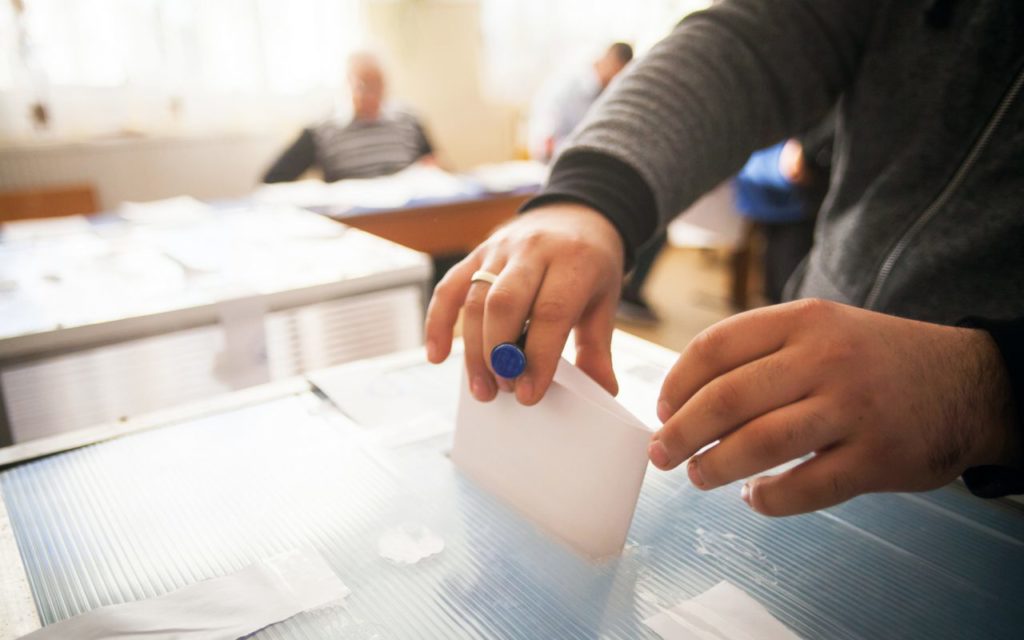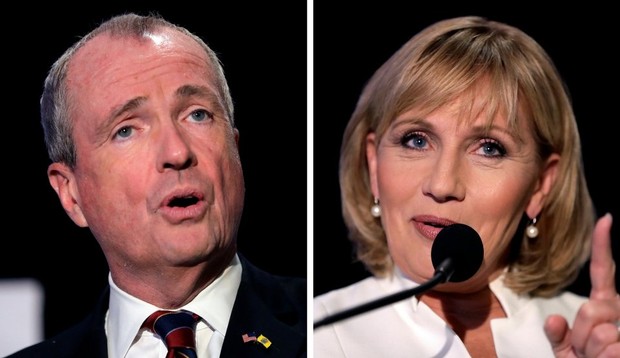Stacks of resumes from retired state troopers sit on a desk just outside the Terra Tech farm here, though the need for experienced armed security appears excessive amid the serene setting and the scent of basil and rosemary growing at the five-acre indoor farm.
The troopers, however, are hoping to work for the company’s next major agricultural expansion in New Jersey: marijuana.
“They told us, ‘Keep us in mind for when you guys do get that cannabis permit,’” said Mike James, the chief financial officer for Terra Tech, which owns five marijuana farms and dispensaries around the country.
The march toward full marijuana legalization has percolated in the state for years and the use of the drug for medicinal purposes has been legal since 2010. But since Philip D. Murphy, the Democratic candidate for governor and the early favorite in recent polling for November’s general election, announced his unambiguous support for making recreational marijuana use legal, the $6 billion nationwide industry has aggressively accelerated its efforts in New Jersey.
While his Republican opponent, Lt. Gov. Kim Guadagno, opposes legalization, a coalition of lobbyists, out-of-state companies, existing medical marijuana dispensaries and even marijuana app companies are eagerly anticipating Mr. Murphy’s possible election as New Jersey’s next governor and are working with lawmakers in the Democratic-controlled Legislature to have a bill ready for him to sign.
In May, Nicholas Scutari, a Democratic state senator, introduced a bill that would legalize up to one ounce of marijuana for recreational use and establish rules and regulations to set up a retail marijuana industry in New Jersey.
He knew that Gov. Chris Christie, who has been adamantly opposed to legalizing marijuana and has accused “crazy liberals” of wanting to “poison our kids,” would never sign it. But Mr. Christie was not the target; Mr. Murphy was.
“Given his support and the leadership of the house, I think we have obviously a legitimate opportunity to do this in the first 100 days of the Murphy administration for an outright cannabis law done legislatively,” Mr. Scutari said.
While Mr. Scutari’s bill has met little criticism from his fellow legislators, medical workers warned of the potential side effects of the drug.
“When we talk about marijuana, it’s not a single drug; it has multiple psychoactive compounds,” said Dr. Corey Waller, 45, of Camden, N.J., who works with the American Society of Addiction Medicine.
“We fought for years against big tobacco,” he added. “And what we have now is the up-and-coming marijuana industry, which is pumping millions of dollars into states and the federal government to try to get this legalized.”
In the eight states that have legalized marijuana, over $82 million has been spent on advocacy both for and against, according to Jeff Brindle, the executive director of the New Jersey Election Law Enforcement Commission. Mr. Brindle wrote in an op-ed that he expected more industry money to flood New Jersey politics.
The growing energy behind legalization comes as marijuana arrests in New Jersey are higher than ever, according to a study by the American Civil Liberties Union, having increased 26 percent from 2000 to 2013. But while arrests are on the rise so is national support for legalizing the drug. A recent poll by CBS News found that 61 percent of Americans believe marijuana should be legal.
In addition to the eight states that have legalized marijuana entirely, 21 states allow its use for medical purposes.
New Jersey has five medical marijuana dispensaries that grow, cultivate, harvest and sell their product, serving a total of about 15,000 customers. But advocates say that is a fraction of the number of potential customers, who they believe are hindered by the state’s restrictive rules on medical marijuana.
Under Mr. Scutari’s bill, the five existing dispensaries would get the first opportunity to open a recreational facility, which would mean extensive expansions.
“We’re prepared to meet the demand,” said Andrew Zaleski, the general manager and a trustee at Breakwater Treatment and Wellness Center, a medical marijuana dispensary in Cranbury, N.J., noting that the company has locations around the state.
But the five existing dispensaries will not be enough for a state with a population of eight million.
“New Jersey has one very tough thing in front of it: To go from a medical use to an adult use, it has the thinnest pre-existing infrastructure,” said Chris Beals, the president of Weedmaps, a technology company whose app of the same name helps users find legal marijuana dispensaries across the world.
Mr. Beals and other legalization advocates say that to keep the black market from remaining the main source of marijuana, a state should have one dispensary for every 7,000 people.
Given the need, major national retailers are also aggressively moving to set up shop. The Green Solution, a cannabis retailer based in Colorado, says it has been approved by the Federal Trade Commission to be a franchisee in the cannabis industry. It has set up locations in states where recreational marijuana is legal and has been looking to sign up franchises in New Jersey to be ready to open sites quickly.
“Our goal is to look at future adult use markets and then develop a franchise model,” said Trent Woloveck, the president of The Green Solution National, likening the process to how a fast-food chain would seek to establish retail outlets in local markets.
And Terra Tech, which has been cultivating herbs and spices in New Jersey since 2013, has been touring farmland in western New Jersey to set up an operation should marijuana become legal in the state. The company reported about $25 million in overall revenue nationwide in 2016, $17 million of which came from cannabis cultivation and sales.
Terra Tech, Green Solution and Weedmaps have hired the same lobbying firm, CLB Partners, to represent their interests in Trenton, help shape Mr. Scutari’s bill and share lessons from legalization efforts elsewhere in the country.
Mr. Murphy said his support for marijuana legalization came after much consideration.
“I was never ‘hell no,’ but I’ve spent a lot of time on it,” he said in an interview last month. “And I have, without question, come to a place where I wasn’t three and a half years ago.”
His argument for legalization is rooted more in criminal justice reform than in the potential to tax the drug (which he says could generate an estimated $300 million in annual revenue, a figure that was also cited by legalization activists in a report last year). The A.C.L.U., which supports legalization in New Jersey, claims that the state “wastes more than $143 million per year to enforce our marijuana possession laws” based on an analysis of federal data they conducted.
Mr. Murphy said he was also motivated by the issue of race. According to the A.C.L.U., African-Americans are far more likely to be arrested on marijuana possession charges than whites.
“You can’t have that many young people of color doing time on stupid drug crimes,” he said.
credit:420intel.com













